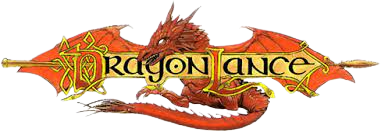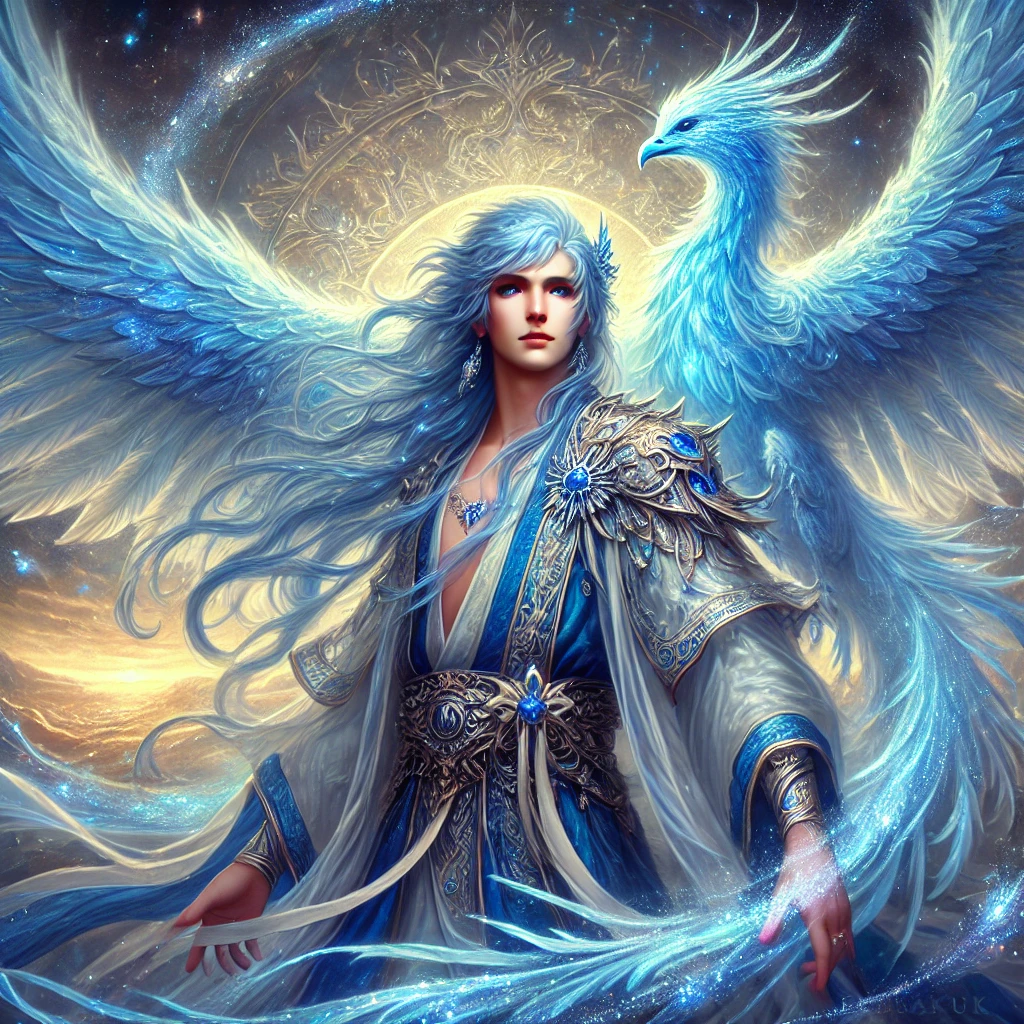Habbakuk, the Fisher King
Table of Contents
ToggleIntroduction
In the world of Dragonlance, where gods shape the fates of Krynn, Habbakuk stands as the divine embodiment of life, the seas, and the eternal cycle of nature. Known as the Fisher King, the Blue Phoenix, and the Patron of Hunters and Mariners, Habbakuk is the protector of the wilds and all who live in harmony with them.
As one of the Gods of Good, Habbakuk does not seek power or dominion over mortals. Instead, he ensures that life flourishes, that the hunter does not take more than needed, and that the balance of nature is upheld. He is revered by rangers, sailors, druids, and those who honor the natural world, believing that all living things have a purpose and a place in the grand cycle of existence.
Origins and Role Among the Gods
Habbakuk was created by the High God as the guardian of nature’s harmony, standing alongside Chislev, the goddess of the wild, and Zivilyn, the god of wisdom and foresight. Unlike gods who rule through law or conquest, Habbakuk’s power lies in the ebb and flow of life itself. He does not demand worship—his presence is felt in every flowing river, every bountiful harvest, and every creature that runs free across the land.
While Chislev embodies the untamed wilderness, Habbakuk represents the balance between nature and those who rely on it, ensuring that hunters, farmers, and sailors respect the world that sustains them.
Domains and Influence
Habbakuk is the god of:
- Nature and the Wilds – Protecting the forests, plains, seas, and all creatures that call them home.
- The Sea and Maritime Life – Guiding fishermen, sailors, and those who depend on the waters.
- Hunting and Stewardship – Teaching that nature provides, but must be respected in return.
- The Eternal Cycle of Life – Representing the natural balance of birth, death, and renewal.
His influence is strongest among druids, rangers, sailors, and those who live in harmony with nature.
Habbakuk’s Followers and Their Ways
Habbakuk’s followers do not seek power or conquest—they protect the land, the seas, and all who rely on them. They do not hoard wealth or worship in grand temples—they live in the forests, the open plains, and the vast oceans, carrying their god’s will in their hearts.
His followers include:
- Rangers and Hunters – Those who respect nature, taking only what they need.
- Druids and Caretakers – Guardians of the forests and the seas.
- Fishermen and Sailors – Those who pray for safe waters and bountiful catches.
- Knights of the Crown – A faction of the Knights of Solamnia who uphold Habbakuk’s ideals of honor and service to the land.
To serve Habbakuk is to understand the balance of life, to respect the natural order, and to fight against those who seek to exploit or destroy the wilds.
Symbols and Worship
Habbakuk is often depicted as a strong, bearded man dressed in robes of green and blue, his staff twined with vines and coral. Among his more mystical followers, he is represented as a great blue phoenix, a symbol of rebirth and the cycle of nature.
His sacred symbols include:
- A blue phoenix – Representing renewal and the eternal cycle of life.
- A leaping fish – A sign of abundance and respect for the waters.
- A stag’s head – Symbolizing the balance of the hunter and the hunted.
Temples to Habbakuk are rare and simple, often found in natural places, such as groves, riversides, and coastal sanctuaries. His followers honor him through action, not words.
Worship and Rituals
Habbakuk’s worship is not about ceremony, but about living in balance with nature. His followers do not seek blessings—they live in a way that honors the cycles of life.
Key rituals include:
- The Offering of the First Catch – A tradition where fishermen and hunters return their first catch of the season to the wild as a sign of gratitude.
- The Renewal Ceremony – A ritual performed at the changing of the seasons, honoring the endless cycle of life, death, and rebirth.
- The Ocean’s Prayer – A blessing given before setting sail, asking for calm seas and safe returns.
Habbakuk’s only commandment is to respect life and take only what is needed.
Allies and Rivals Among the Gods
As a God of Good, Habbakuk shares deep ties with:
- Mishakal, goddess of healing, who believes in preserving life.
- Kiri-Jolith, god of honor, who respects the discipline of the hunt.
- Chislev, goddess of nature, who values his stewardship of the land.
However, he despises:
- Morgion, god of disease, who spreads corruption and poisons the land.
- Zeboim, goddess of storms, whose chaos threatens the balance of the sea.
- Hiddukel, god of greed, who exploits nature for profit without regard for life.
Habbakuk stands against those who abuse nature, whether through reckless expansion, senseless destruction, or unchecked greed.
Habbakuk in Legends and Stories
The Fisher King’s Warning
One of the most well-known legends tells of a time when a greedy village overfished the ocean, ignoring Habbakuk’s warnings. Though their nets were full, a terrible famine followed, for the balance had been broken. One night, a blue phoenix appeared, flying over the waters. When morning came, the fish returned—but only after the villagers vowed to take only what they needed.
This tale serves as a reminder that nature provides, but it must never be exploited.
The Warrior and the Wolf
Another tale speaks of a warrior who sought Habbakuk’s favor in battle. The god appeared to him in the form of a great wolf, telling him, “A true hunter does not kill for pleasure, but for necessity.” The warrior took the lesson to heart, fighting not for conquest, but for protection and honor.
From that day forward, his people prospered, living in harmony with the land, and the spirit of the great wolf was seen watching over them in times of need.

